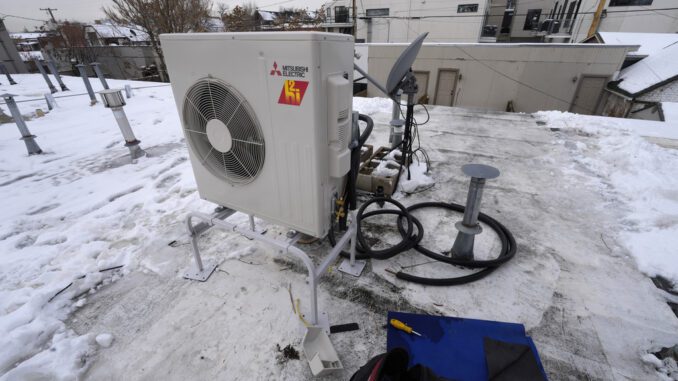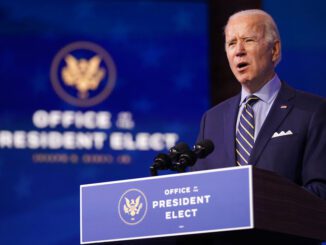
A group of 25 state governors that make up the U.S. Climate Alliance and the Biden administration announced a pledge Thursday to quadruple the number of heat pumps in U.S. homes by 2030, from 4.7 million to 20 million.
Heat pumps use little electricity, yet are able to heat and cool buildings. Since they often replace oil or gas furnaces that add greenhouse gases to the air, they can meaningfully address climate change.
Buildings account for more than 30% of global greenhouse gas emissions.
The pledge on heat pumps is a collection of state initiatives to work toward the goal of ramping down emissions to zero by 2050. Pennsylvania and seven other states, for example, will look into developing a “clean heat” standard, meaning one for how non-polluting a heater needs to be.
Some major manufacturers of heat pumps, including Johnson Controls, Siemens and Trane Technologies released a letter of support following the announcement.
The governors in the alliance represent approximately 60% of the U.S. economy and 55% of the country’s population.
Washington Gov. Jay Inslee called heat pumps “almost a miraculous solution” to three problems Americans face, “heating in the winter, cooling in the summer, and a reduction of carbon pollution.”
The reason heat pumps run on less electricity than other forms of heating is that they merely extract heat from outdoor air or underground and transfer it inside, instead of heating up a coil, for instance. They are just as good at cooling, pulling heat from indoors and dumping it outside or underground.
“Even on a winter’s day, heat pumps can take heat from outside, move it inside, and use less energy than if you were heating your house with a furnace,” said Stephen Porder, a professor of ecology and assistant provost for sustainability at Brown University. “A furnace makes heat by burning something, (but) moving heat is more efficient than making it.”
In Providence, Rhode Island where Porder lives, there is more call for heating than air conditioning. In 2014, he said, he ditched his oil furnace and installed heat pumps. “My house is more comfortable, my energy bills are about half what they were before, and my house’s greenhouse gas emissions, even counting the electricity to run the heat pumps, have dropped by 75%. Plus, I now have AC, which I didn’t have before,” he said.
Because they are believed to address climate change, heat pumps are highly incentivized under the U.S. Inflation Reduction Act, which provides a 30% tax credit. Other states and utilities offer additional tax credits on top of the IRA incentive.
“There is already a huge increase in heat pump installations in the U.S. Heat pump units outsold gas furnace units, previously the most popular type of heating system, last year,” said Amanda Smith, a senior scientist at Project Drawdown, citing data from the International Energy Agency.
“People have been struggling with home heating costs and high energy costs in Maine, especially the last couple of years because we’ve been so over reliant on global fossil fuel energy markets,” said Maine Gov. Janet Mills. “I think people in Maine are interested in anything that will save them money, make their homes and businesses more efficient, and more comfortable financially.”


